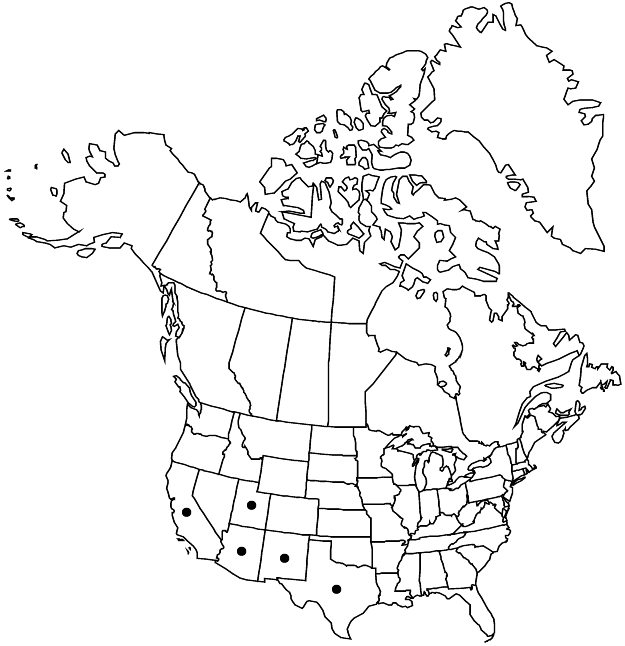Eriogonum polycladon
in A. P. de Candolle and A. L. P. P. de Candolle, Prodr. 14: 16. 1856.
Herbs, narrowly erect, (0.5–)1–6 dm, tomentose, whitish to grayish. Stems: aerial flowering stems erect, (0.3–)1–3 dm, tomentose. Leaves cauline; petiole 0.3–1.5 cm; blade narrowly oblanceolate to broadly elliptic, (0.7–)1–3 × 0.5–1.5 cm, densely white-tomentose and whitish to grayish on both surfaces. Inflorescences narrowly cymose, distally uniparous due to suppression of secondary branches, open, (5–)10–50 × 10–25 cm; branches tomentose; bracts 1.5–3 × 1–2.5 mm. Peduncles absent. Involucres appressed to branches, turbinate, 1.5–2.5 × 1–2 mm, tomentose, rarely glabrous; teeth 5, erect, 0.4–1 mm. Flowers (1–)1.5–2 mm; perianth white, becoming pink or red, glabrous; tepals dimorphic, those of outer whorl broadly fan-shaped, those of inner whorl oblanceolate; stamens included, 1–1.5 mm; filaments pilose proximally. Achenes dark brown, 3-gonous, 1–1.3 mm. 2n = 26.
Phenology: Flowering year-round.
Habitat: Sandy to gravelly washes, flats, and slopes, saltbush, creosote bush, greasewood, blackbrush, and sagebrush communities, oak, pinyon and/or juniper, and montane conifer woodlands
Elevation: (200-)500-2200(-2500) m
Distribution

Ariz., Calif., N.Mex., Tex., Utah, Mexico (Chihuahua, Durango, Sonora).
Discussion
Eriogonum polycladon is widely distributed from near Needles, San Bernardino County, California (where not found since the 1930s), eastward to western Texas, and from southern Utah throughout much of central and southern Arizona into western and southern New Mexico. It is found also in the Mexican states of Chihuahua, Durango, and Sonora. It can be locally common and occasionally weedy, especially in southeastern Arizona and southwestern New Mexico.